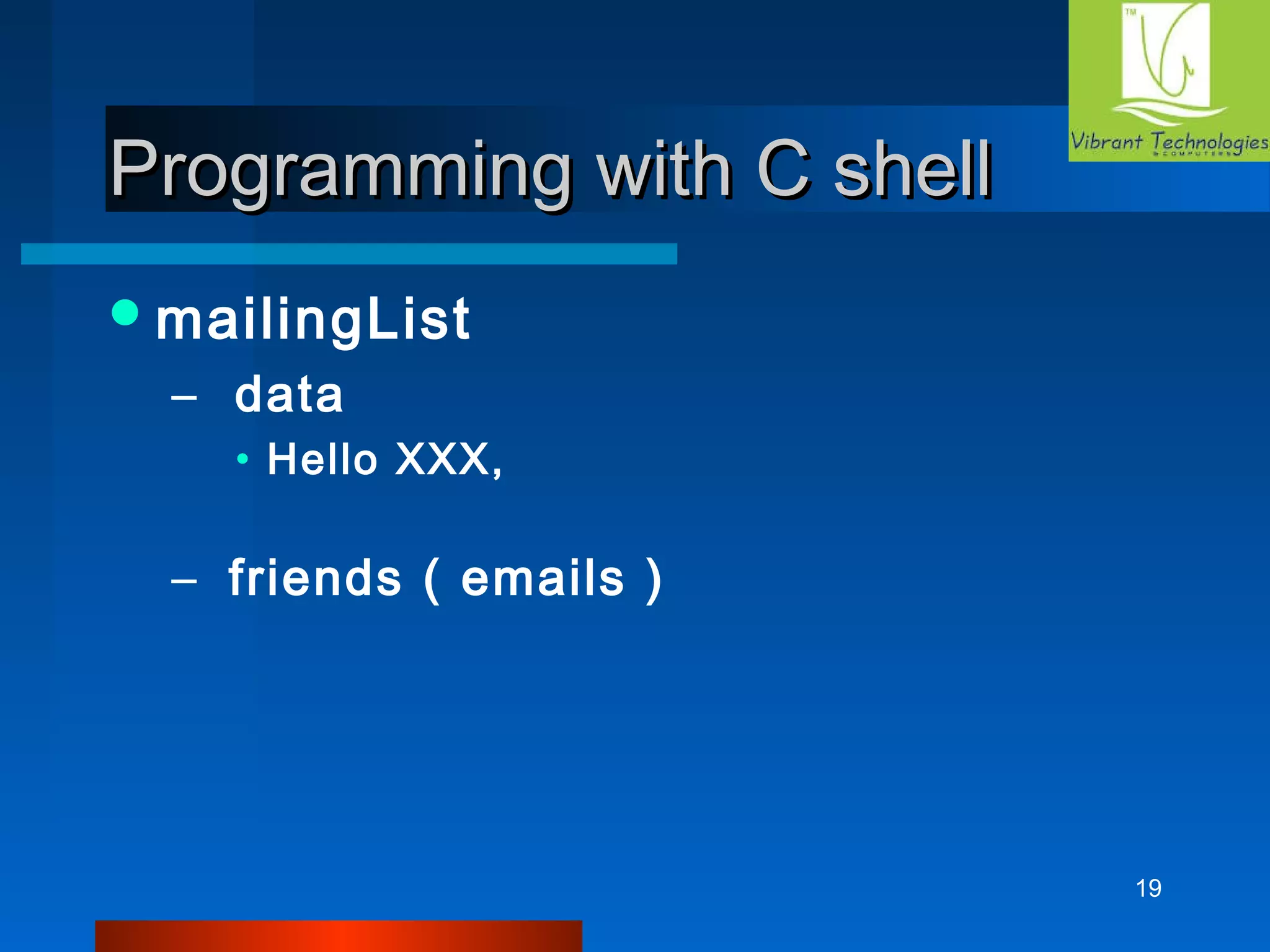The document provides a comprehensive guide on C Shell scripting, covering topics such as user input, command line arguments, conditionals, and loops. It includes practical examples of scripting, debugging, and file testing, along with explanations of key commands and variables. Additionally, it offers resources and links for further information on C Shell programming.

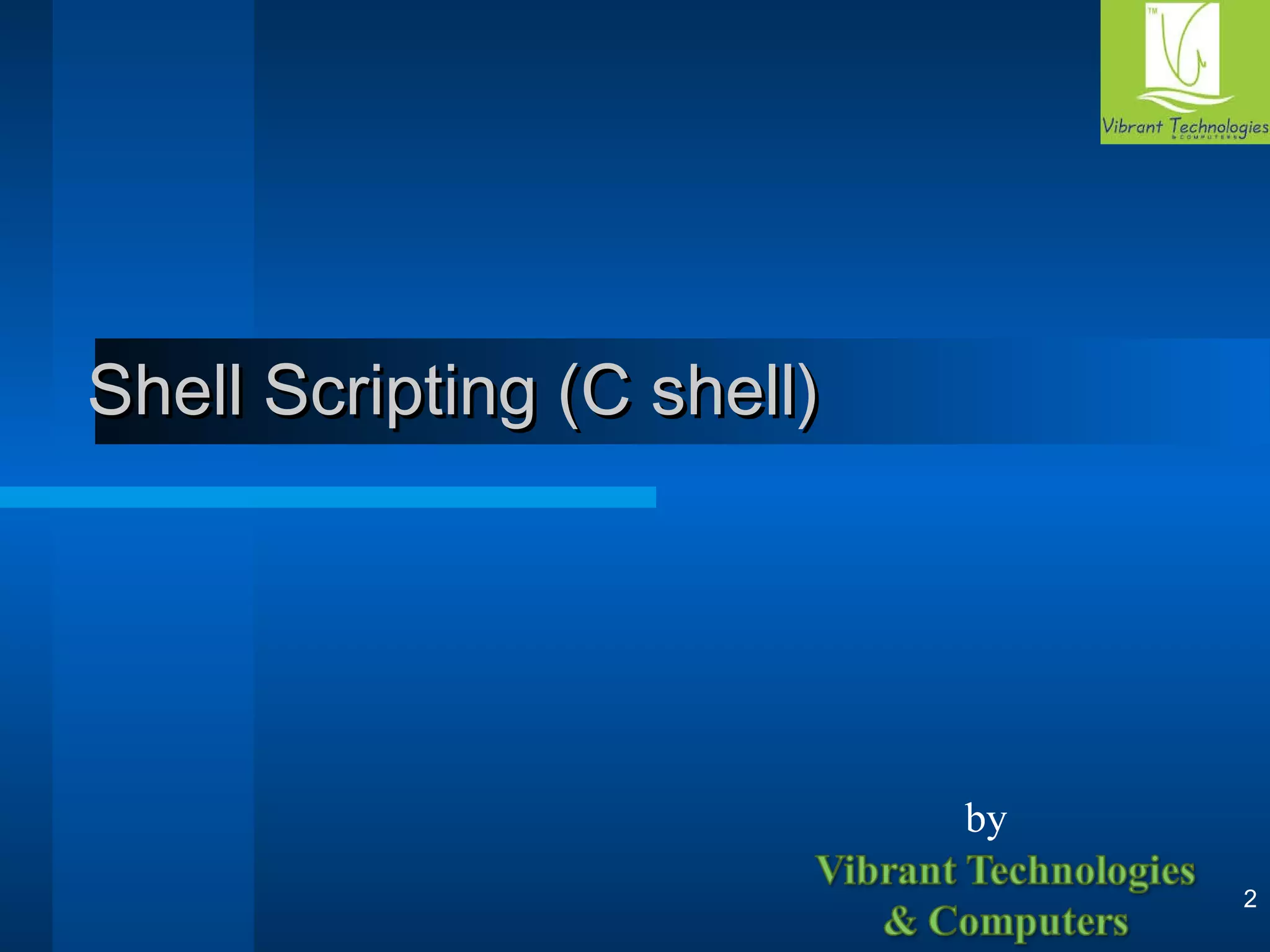
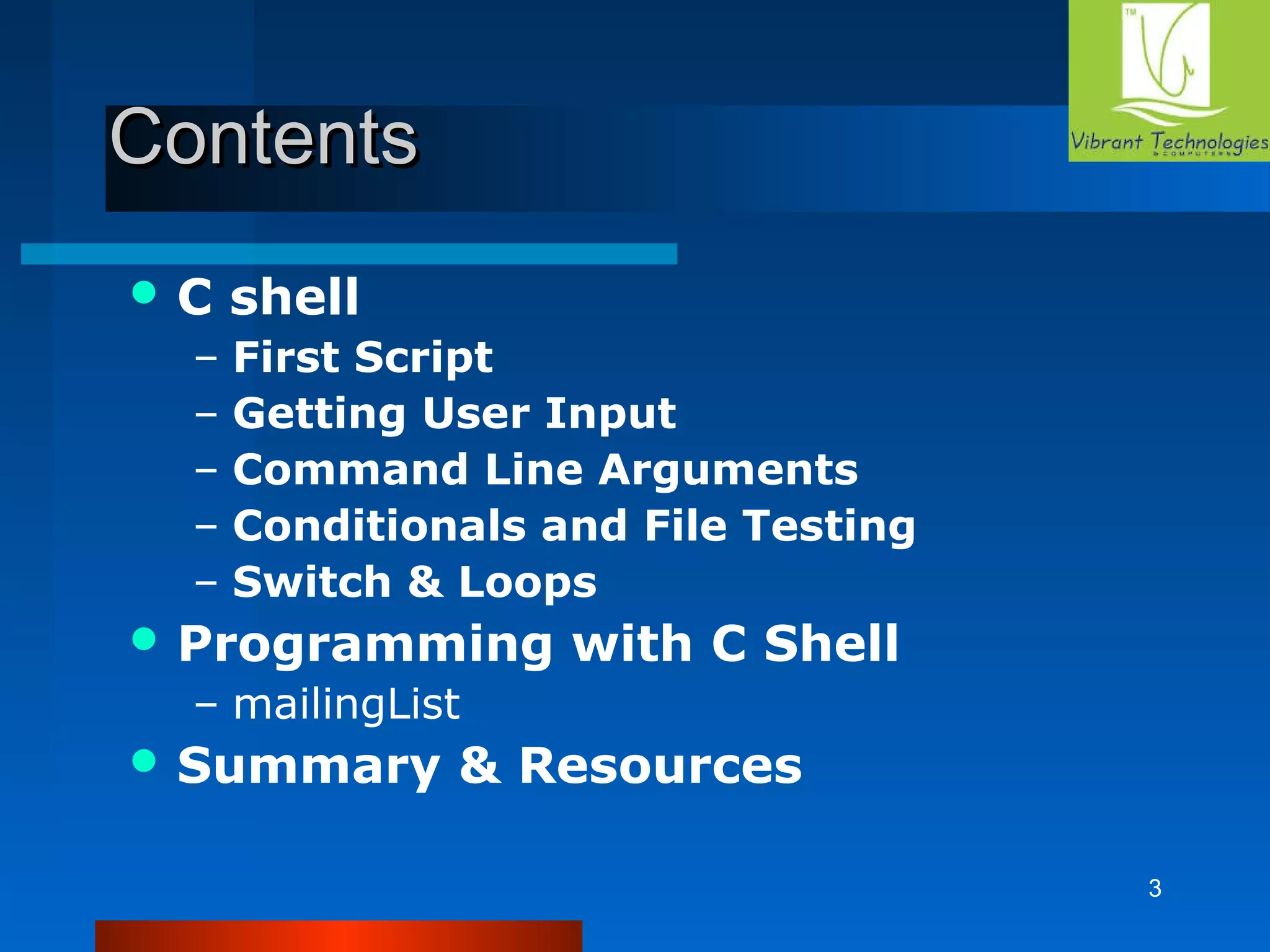
![4
CC SShheellll
#! /bin/csh
set name = hello -> echo $name
$array = ( element1 elemsnt2 )
$array[1] , $array[2]](https://image.slidesharecdn.com/shellandperlscriptingclassesinmumbai-141030044234-conversion-gate02/75/Shell-and-perl-scripting-classes-in-mumbai-4-2048.jpg)
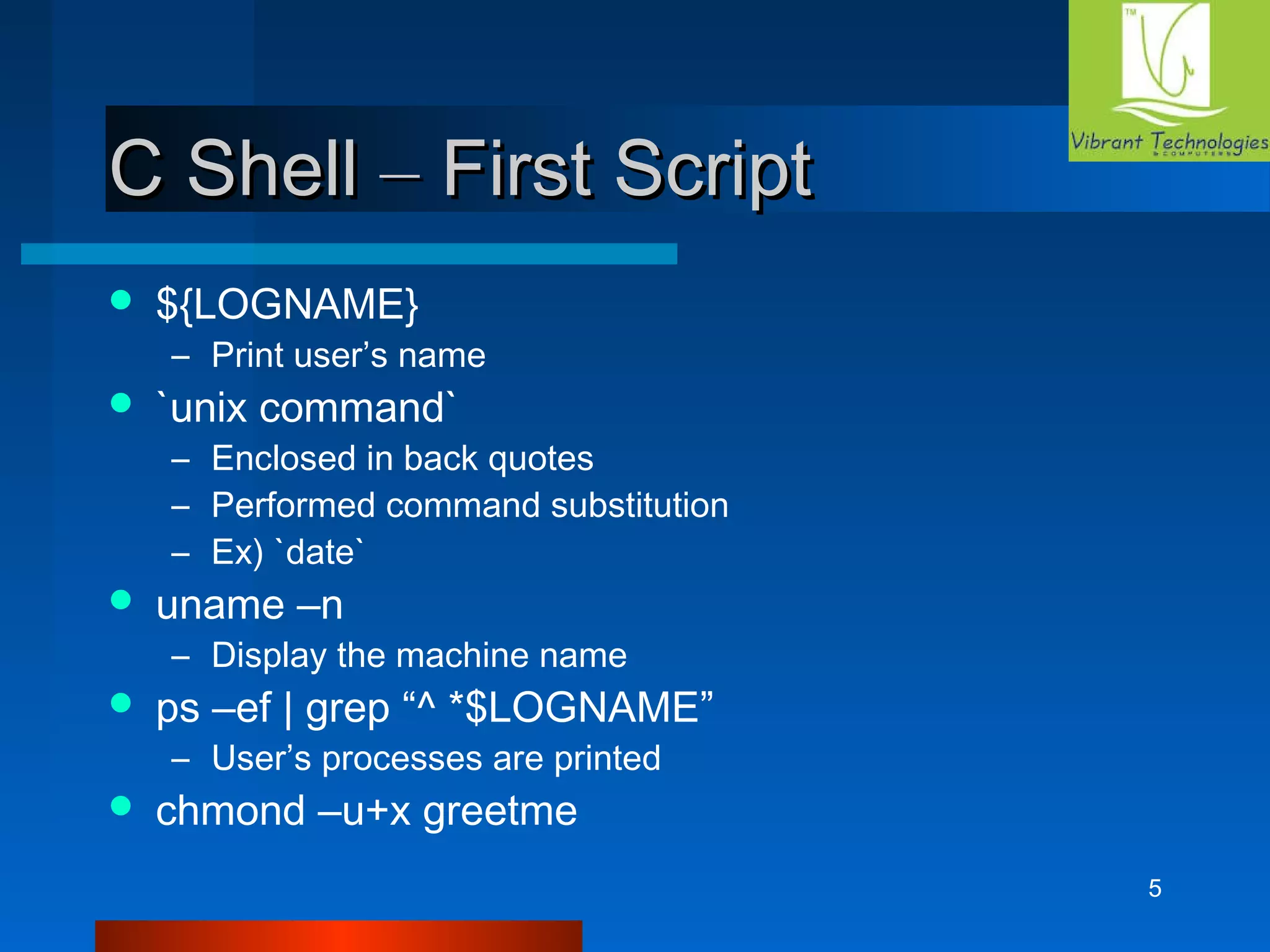
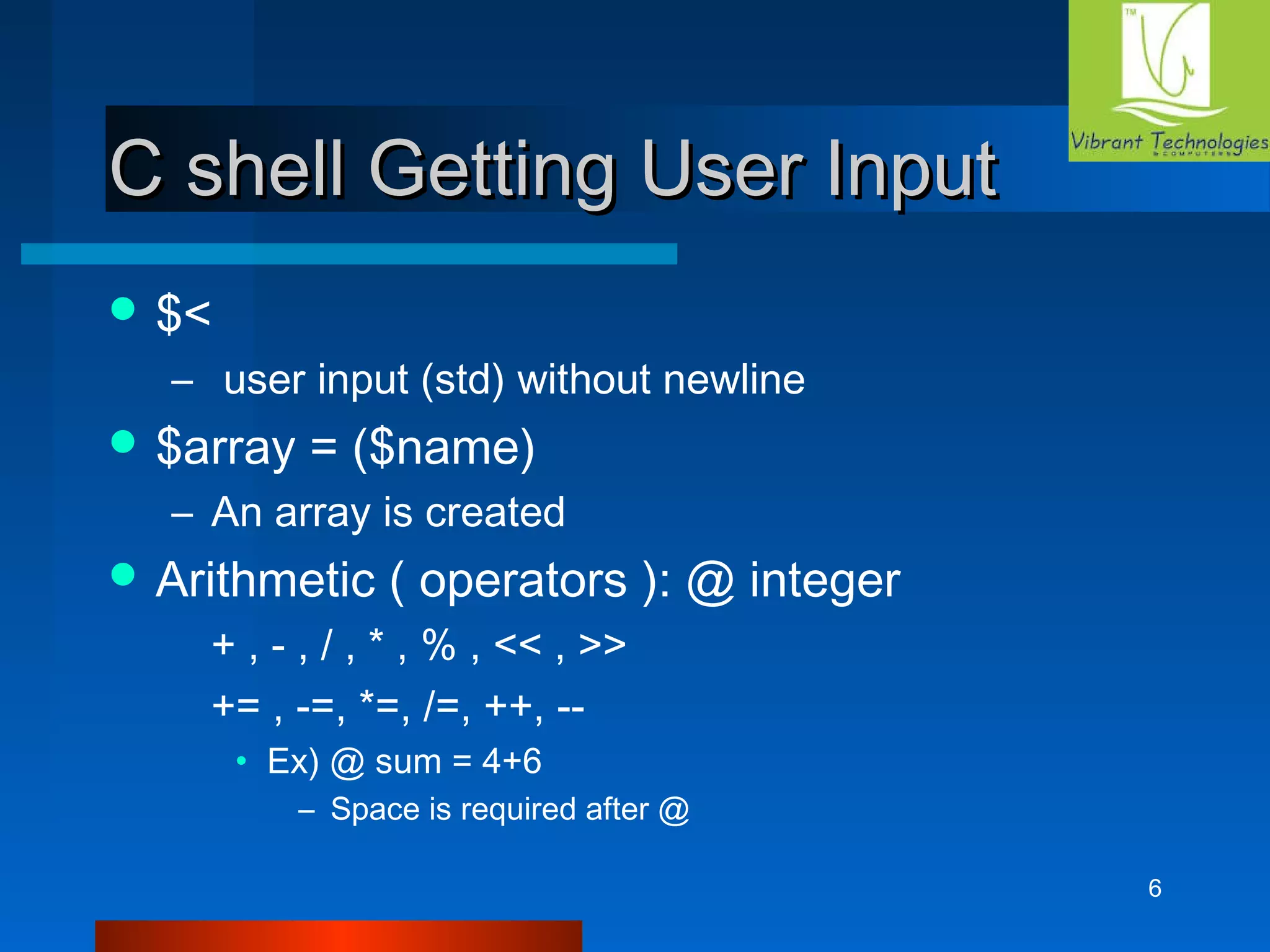
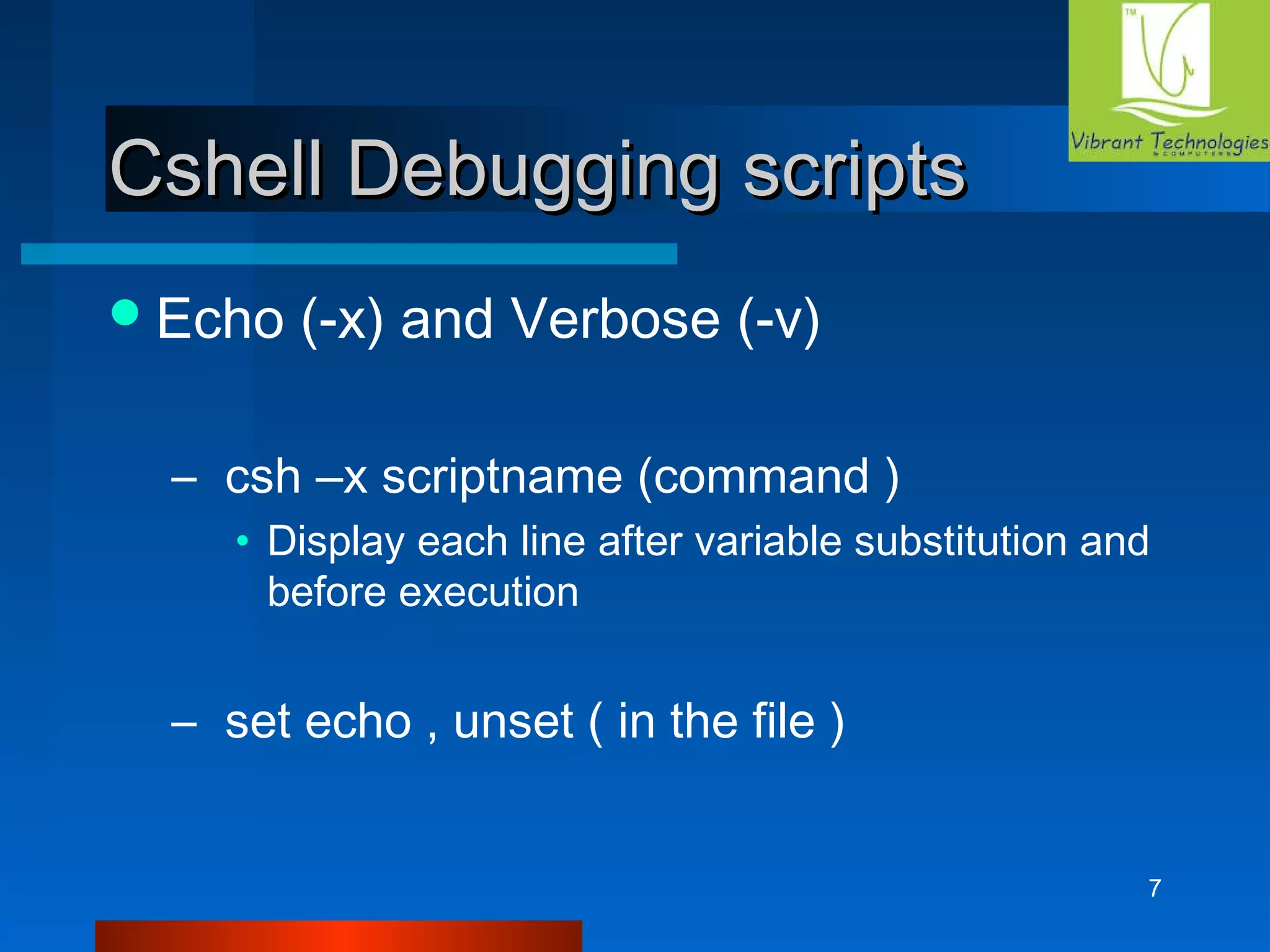
![8
c Cshell coommmmaanndd lliinnee aarrgguummeenntt
$0 - The name of the script
$1, $2, $3,..${10}
– Parameters are referenced by number
$* - All positional parameters
$argv[1], $argv[2]
– The first argument , second …
$argv[*] or $argv – all arguments
$#argv – The number of arguments (size)
$argv[$#argv] – The last argument](https://image.slidesharecdn.com/shellandperlscriptingclassesinmumbai-141030044234-conversion-gate02/75/Shell-and-perl-scripting-classes-in-mumbai-8-2048.jpg)
![9
Cshell Conditional ccoonnssttrruuccttss
== , != , <, > , >= , <= , !
=~ , !~
– String matches ex) $ans =~ [Yy]*
|| , &&
– Logical operator](https://image.slidesharecdn.com/shellandperlscriptingclassesinmumbai-141030044234-conversion-gate02/75/Shell-and-perl-scripting-classes-in-mumbai-9-2048.jpg)
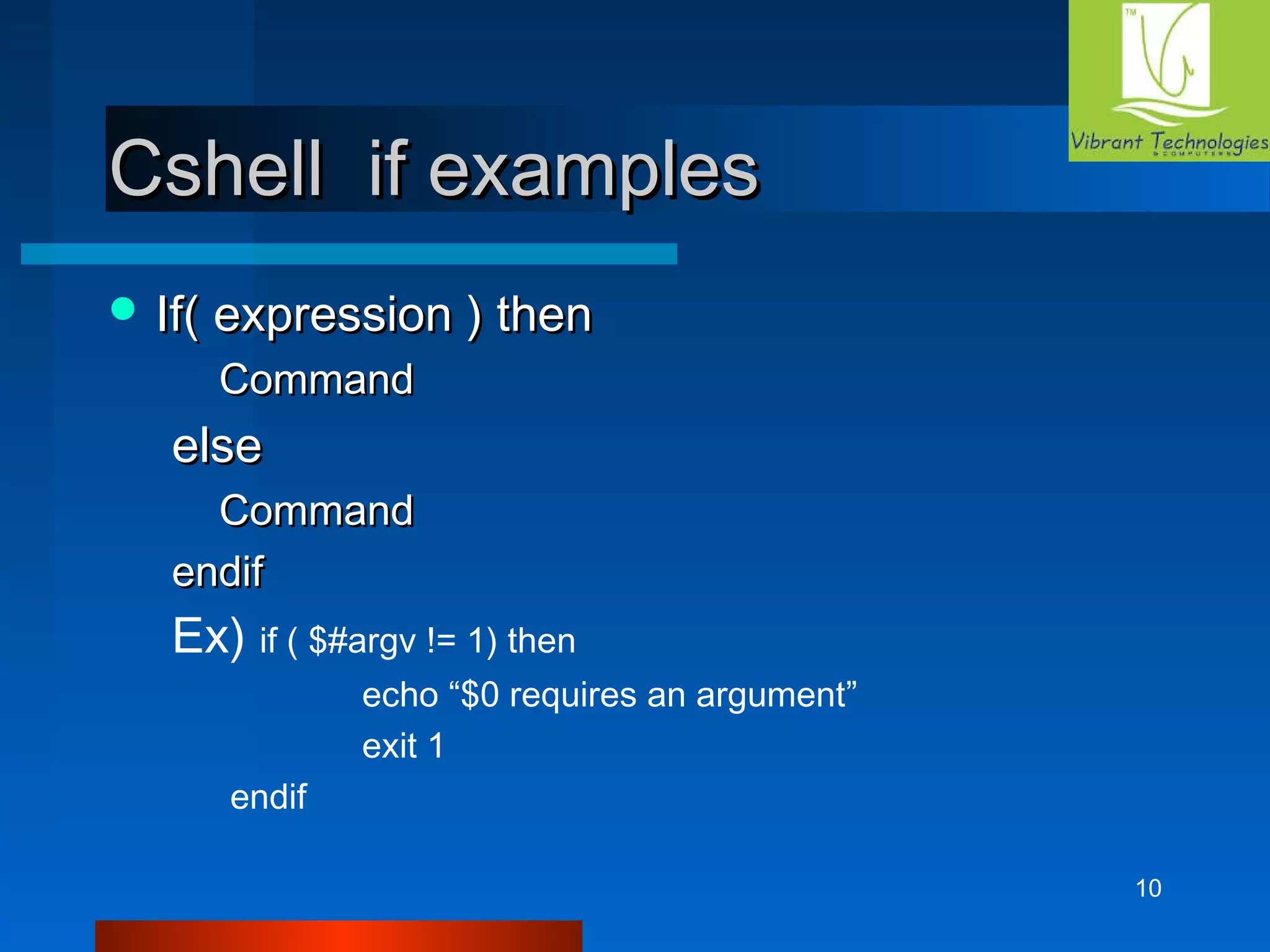
![11
CCsshheellll iiff eexxpprreessssiioonn
set name = $<
If( “$name” != “” ) then
grep “$name” data file
endif
If( $answer =~ [Yy]* ) then
mail bob < message
else
mail jon < datafile
endif
set x = 1 , y = 2, z = 3
If( (“$x” && “$y”) || ! “$z”) then
echo TRUE
If( $#argv == 0 ) exit 1](https://image.slidesharecdn.com/shellandperlscriptingclassesinmumbai-141030044234-conversion-gate02/75/Shell-and-perl-scripting-classes-in-mumbai-11-2048.jpg)
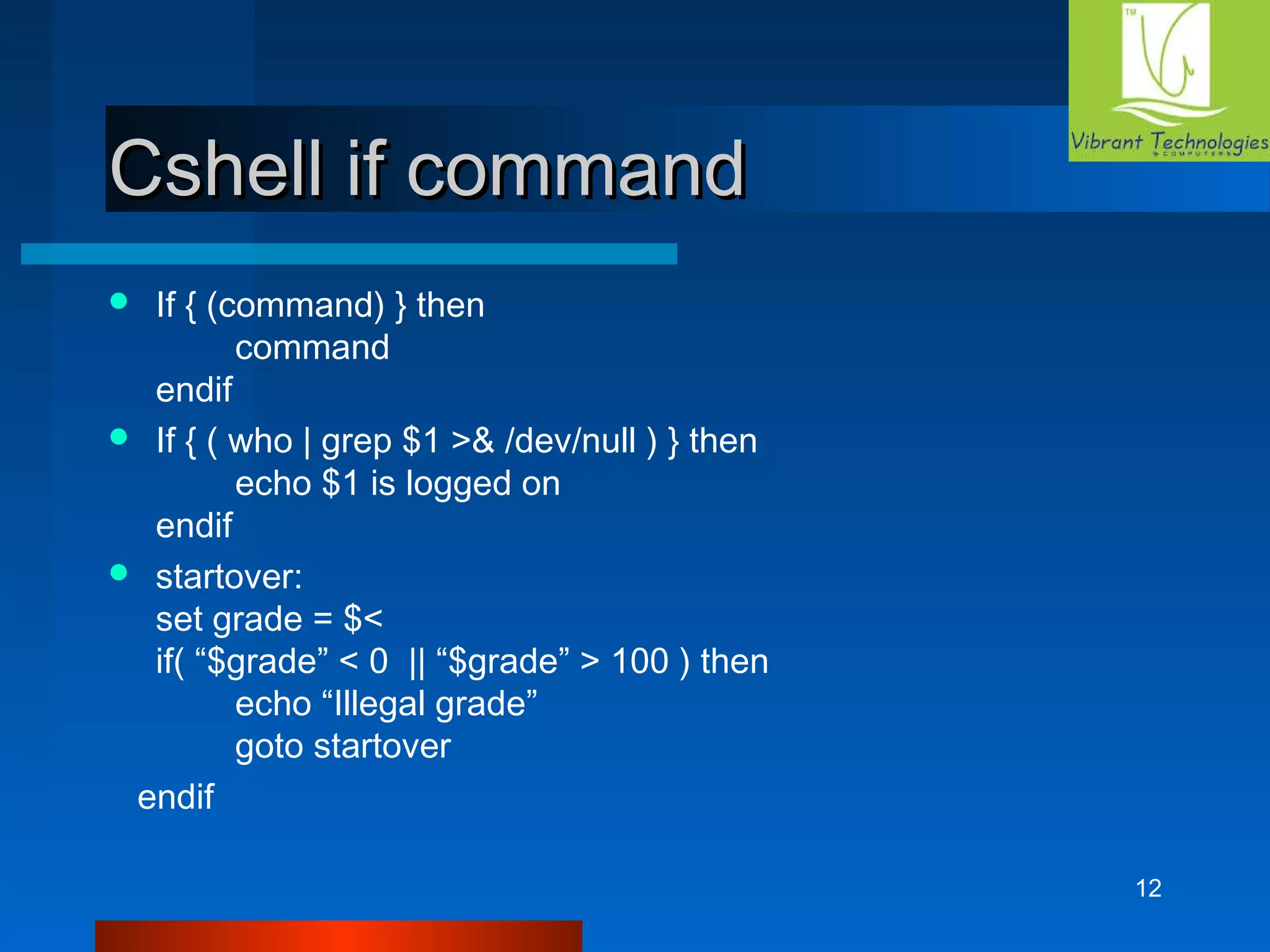
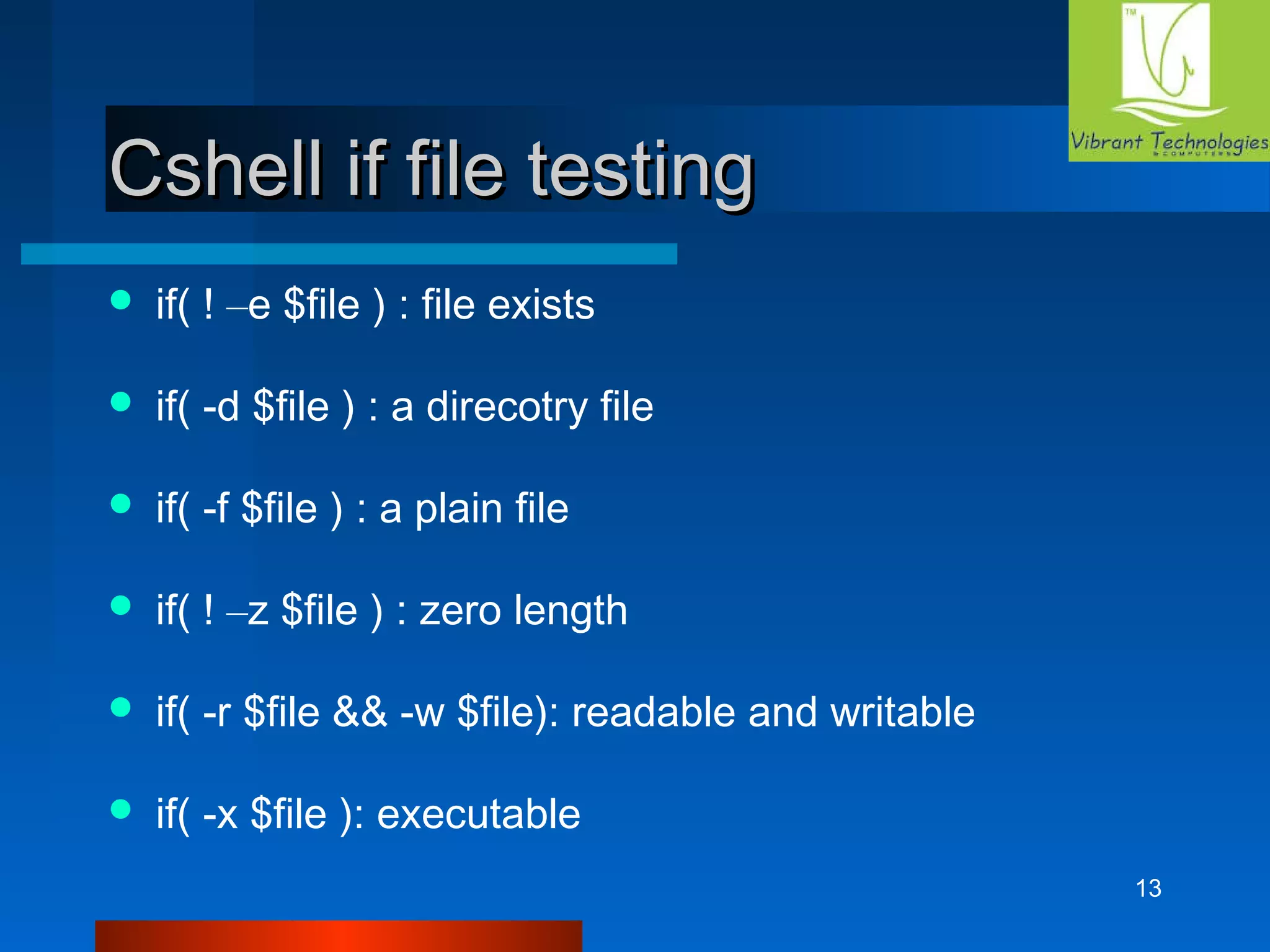
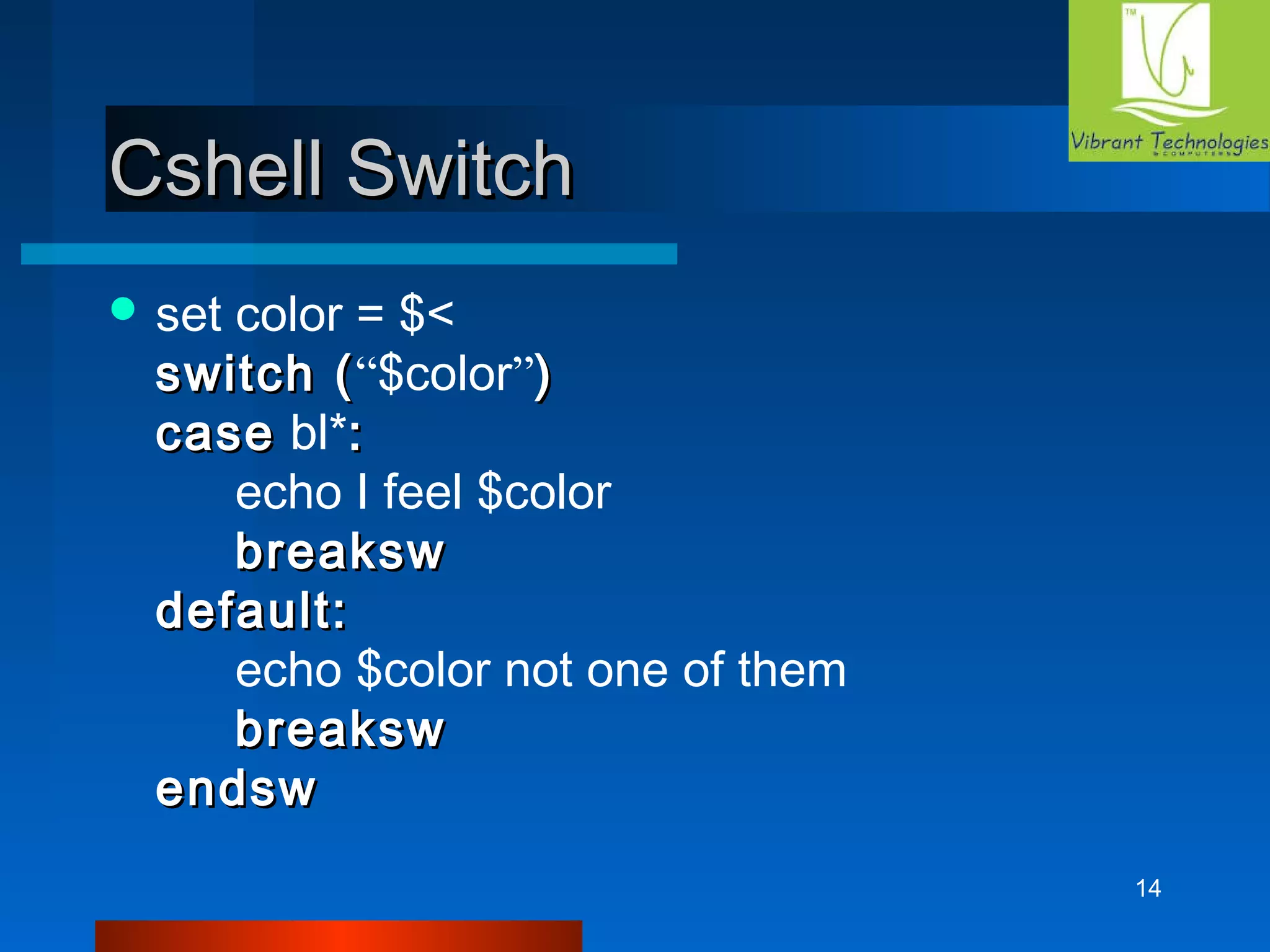
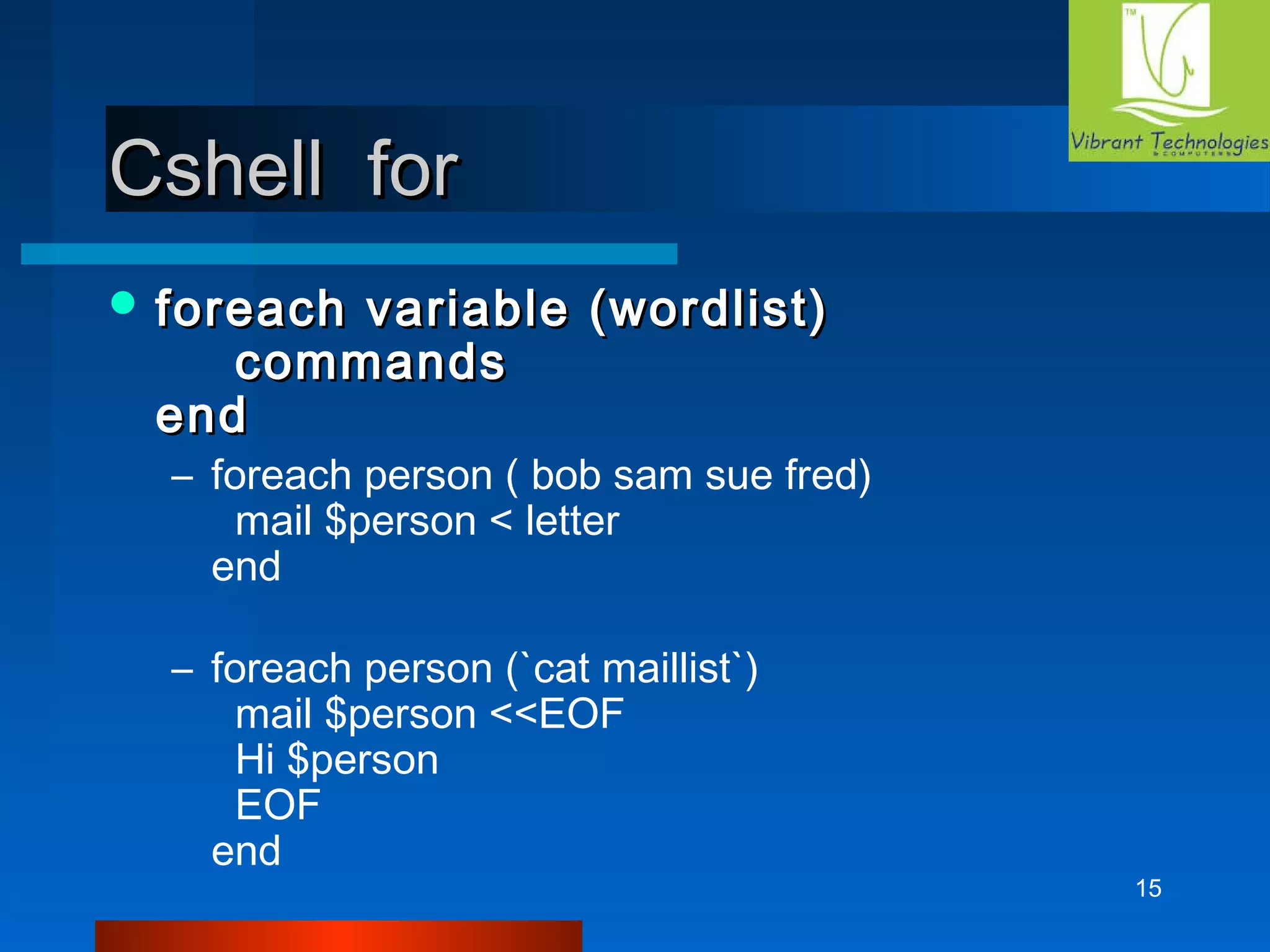
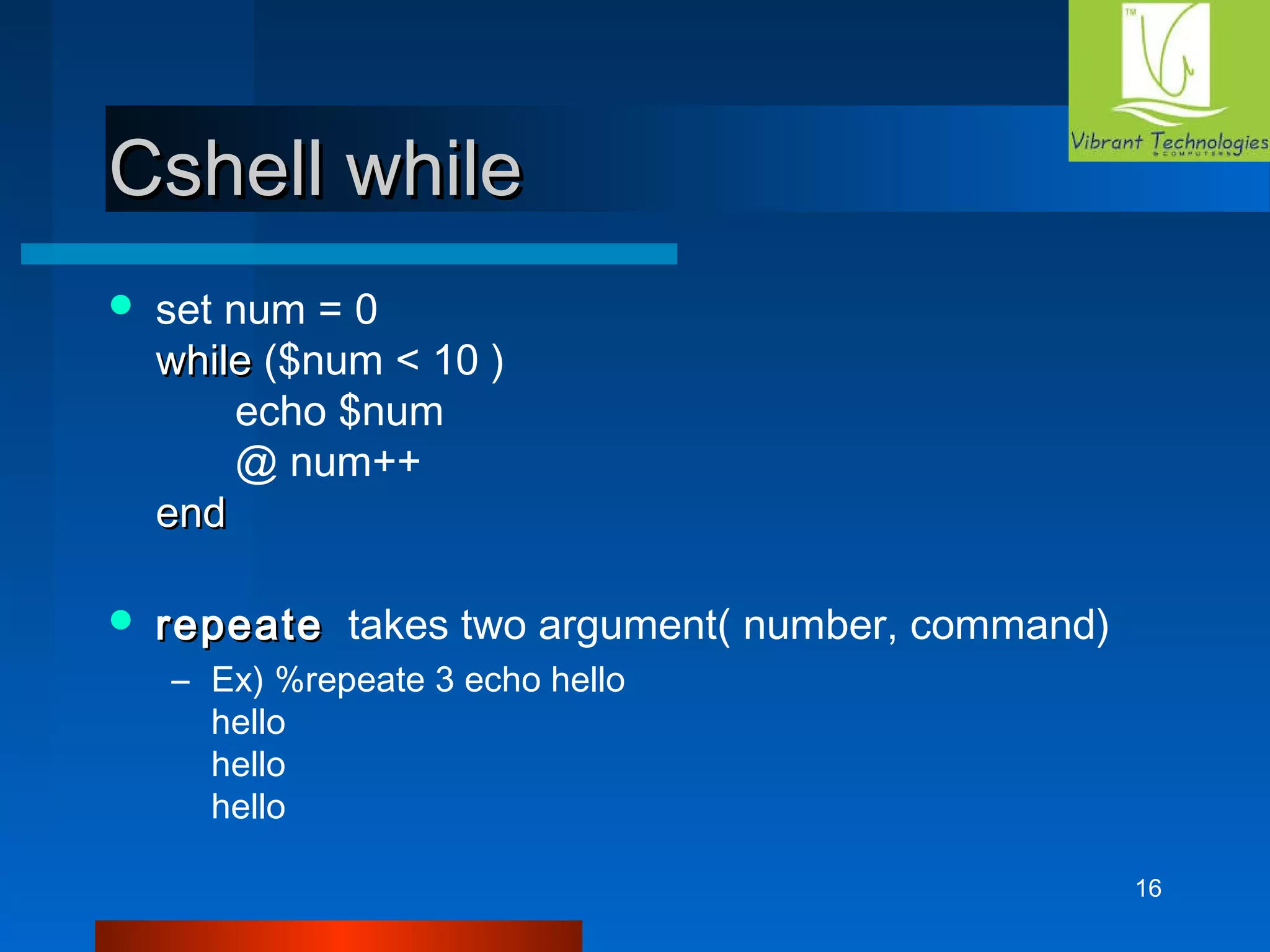
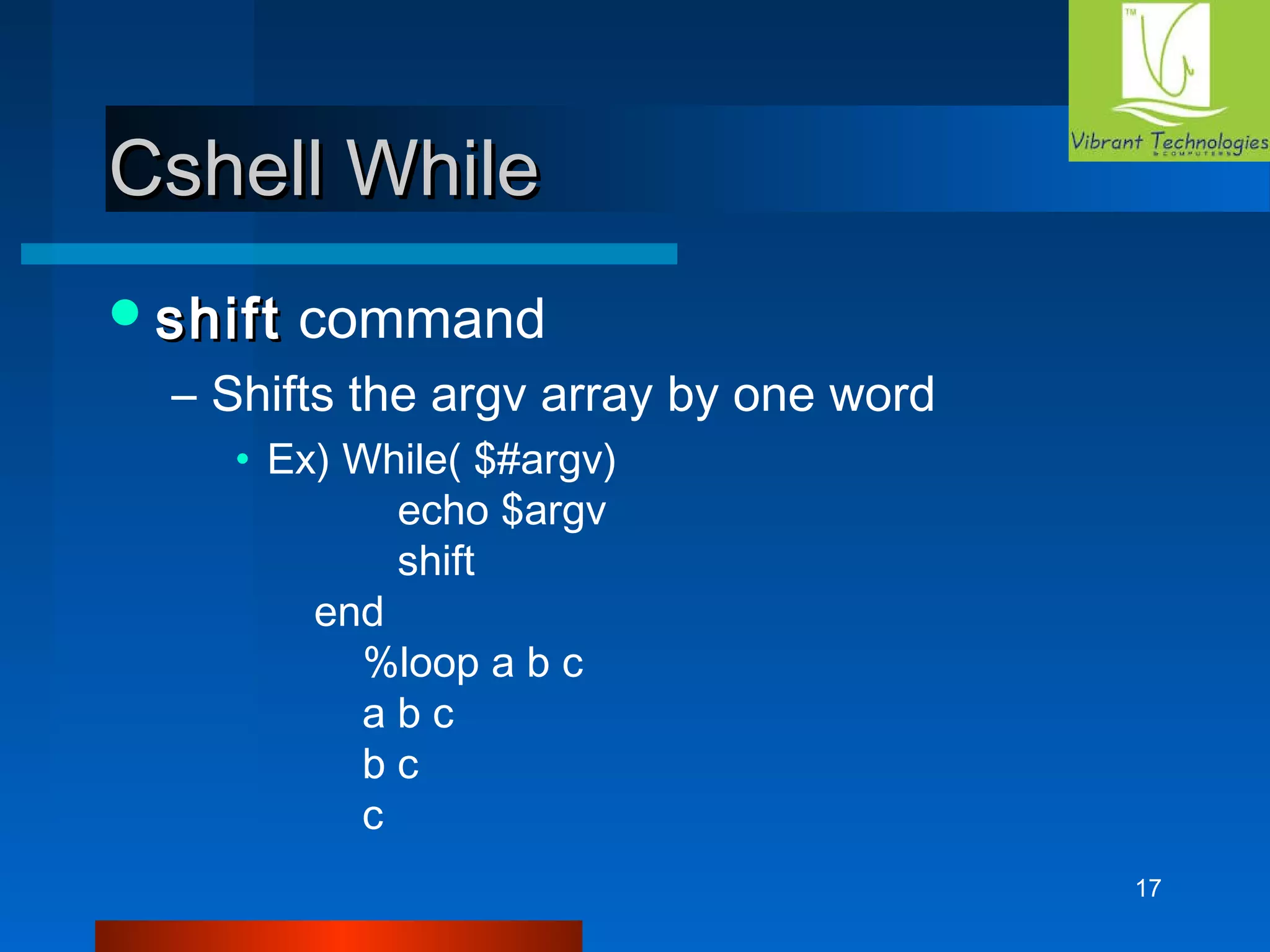
![18
CCsshheellll WWhhiillee
break && continue command
set answer = $<
while( “$answer” !~ [Mm]* )
echo “Wrong! Try again.”
set answer = $<
if( “$answer” =~ [Mm]*) break;
end](https://image.slidesharecdn.com/shellandperlscriptingclassesinmumbai-141030044234-conversion-gate02/75/Shell-and-perl-scripting-classes-in-mumbai-18-2048.jpg)
